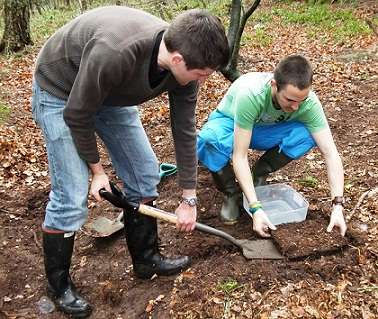Nature's resistance against climate change

New research has thrown light on the impact climate change has on the vital function of woodland habitats.
Soil ecosystems in woodlands are important players in nature's ability to moderate the effects of global warming, largely because of their ability to decompose organic matter, recycle nutrients and soak up carbon that could otherwise contribute to the greenhouse effect. Underpinning these processes are decomposer organisms; fungi and soil invertebrates, such as woodlice, earthworms and springtails.
In a study recently published in the journal Oecologia and endorsed by the Faculty of 1000 as being of special significance in its field, soil ecologist Don A'Bear, from the School of Biosciences, writes that global warming and altered rainfall patterns will increase the abundance and activity of woodland soil decomposers.
The paper, 'Bottom-up determination of soil collembola diversity and population dynamics in response to interactive climatic factors', warns that climate change may affect some organisms within the ecosystem more than others. Such disruption to decomposer organisms could have disastrous effects on the soil's ability to absorb carbon – a major global concern.
More information: "Bottom-up determination of soil collembola diversity and population dynamics in response to interactive climatic factors." A. Donald A'Bear, Lynne Boddy, T. Hefin Jones. Oecologia, November 2013, Volume 173, Issue 3, pp 1083-1087
Journal information: Oecologia
Provided by Cardiff University














